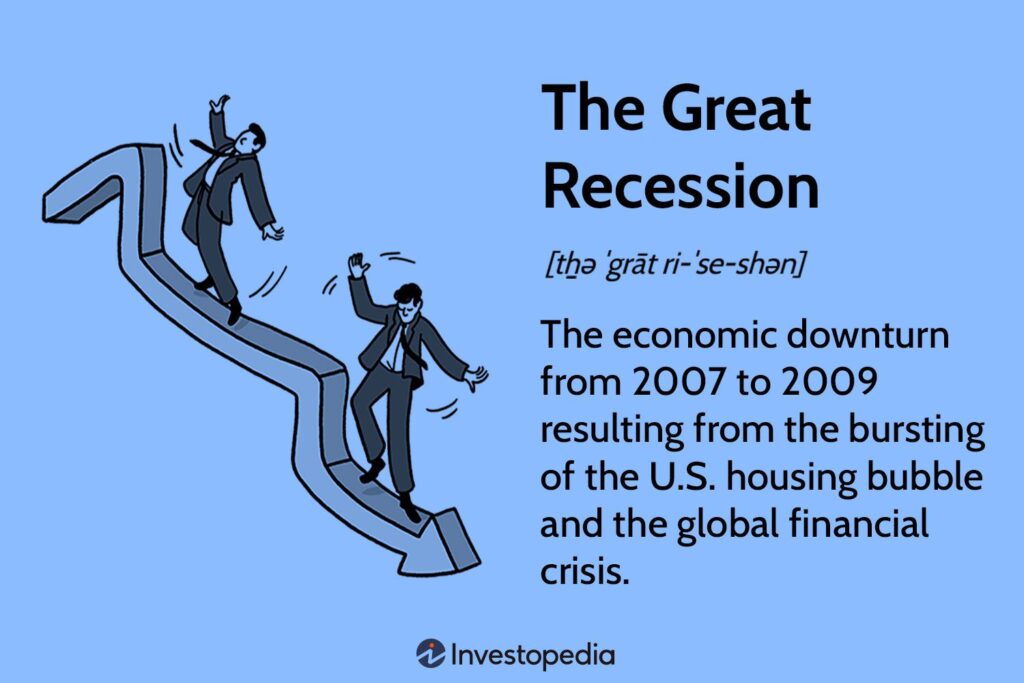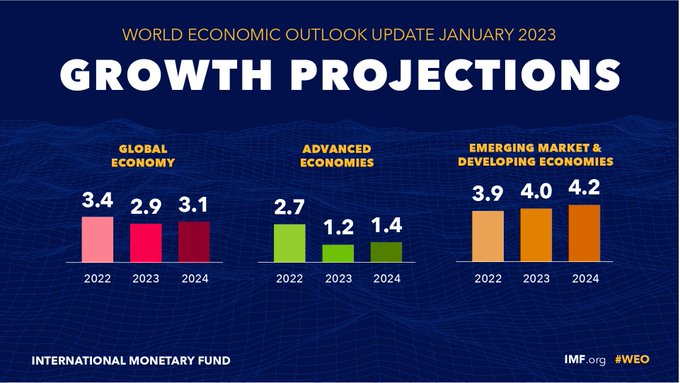The world had just recovered from the pandemic and the resultant financial distress only to see more financial uncertainty from the ongoing geopolitical conflict between Russia and Ukraine. If that was not enough, the imminent threat of recession has led to companies laying off employees in thousands across the globe.
Almost two-thirds of the members of the World Economic Forum’s Community of Chief Economists believe that recession will hit the globe in 2023, as the symptoms continue to linger from late 2022. The International Monetary Fund (IMF) has also predicted the incoming recession this year.
What is Recession?
A recession is a significant and widespread decline in economic activity that lasts for an extended period, typically at least two consecutive quarters (six months) of declining Gross Domestic Product (GDP). During a recession, businesses tend to reduce production, leading to layoffs and increased unemployment, while consumers cut back on spending.

This reduction in economic activity can cause a range of negative effects, including decreased tax revenue, increased government spending on social programs, and a decline in investment. Recession is a normal part of the business cycle, but it can have significant economic and social consequences, that may last for years.
Financial Crisis of 2008
The financial crisis of 2008 immediately springs to mind when recession is mentioned anywhere.
Time period: December 2007 – June 2009
Duration: 18 months
Global GDP decline: -5.1%
Peak global unemployment: 10% (Oct 2009)
Historical Occurrence: Early 2000s recession

The 2008 recession, also known as the Global Financial Crisis or The Great Recession, was a severe economic downturn that began in the United States in 2008 and spread to the rest of the world. It was triggered by a combination of several factors, including a housing market bubble, risky lending practices, and complex financial instruments. The crisis led to widespread job losses, bank failures, mounting debts due to reduction in disposable income, fall in purchasing power of consumers and a sharp decline in economic activity, and its effects were felt for many years afterward.
Recession in India in 2023?
While the Indian economy did shrink during the COVID-19 pandemic, as did other economies, it has managed to bounce back fairly well which should soften the blow of the impending recession and make recovery easier in the future. Growth projections for emerging Asian economies look optimistic, however, they should always be taken with a grain of salt because there are a lot of other complex factors at play.

During the G20 meeting on Infrastructure Working Group (IWG) in Pune on January 16, Union Minister Narayan Rane said that recession will hit India in June 2023, mainly due to global GDP contraction. He also mentioned that the government was working on handling it effectively.
“This is what I have gathered from the discussion in the meetings of the Union government. The recession is expected to hit India after June,” says Rane.
While the IMF expects the global recession to hit one-third of the countries, the impact of recession on India, and its potential arrival should not solely be judged on external factors. Internal situations in India such as reducing foreign investments, declining exports, rising unemployment, increase in trade deficit etc will also play a key part in determining the extent to which the Indian economy will feel the effects of recession.
An economic slowdown, but not a technical recession? The jury’s still out.



